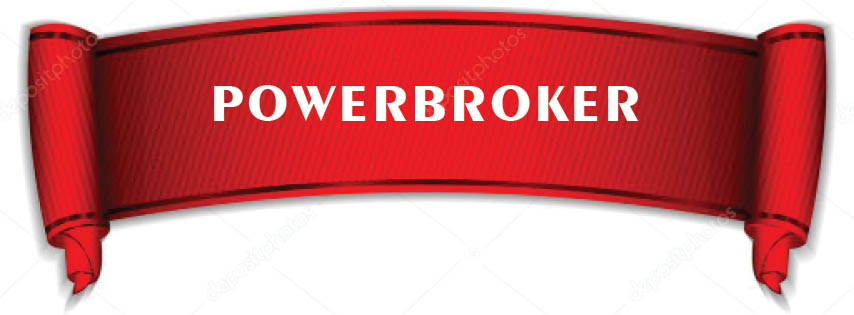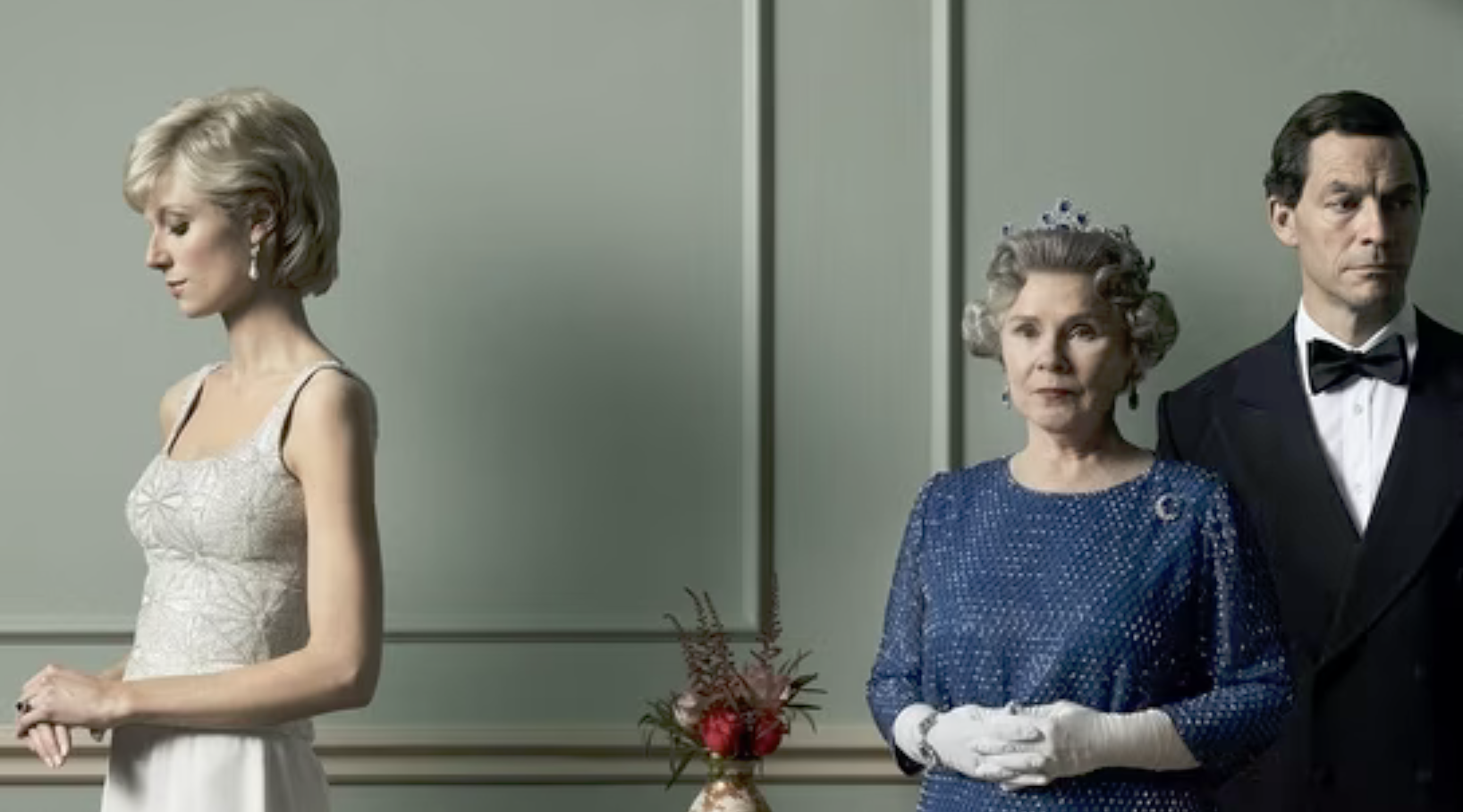
Beyond Contempt
Uneasy lies the head that wears The Crown.

The Crown Season 6 via Netflix
It reads like Dickens serialized in any tabloid or broadsheet in Britain. The one loose moral of the story? Perhaps Boz said it best: "Never believe what you read in the papers."
Regina v. Coulson, Brooks and Others determined the public had been toxically duped in 2013, and that the free press had catastrophically failed. Moreover, the BBC "fell short of the high standards of integrity and transparency which are its hallmark" when deceiving the Spencer family and Diana, Princess of Wales, into a 54-minute interview in 1995 watched by 200 million people in 100 countries. Finally, Peter Morgan's Season 6 of The Crown (streaming December 14) stories the 1200 year old English monarchy's transition from absolute control of the public narrative to comparative supplicants to the British press. At the center of the story lies a matter of principle, and a stunning plot twist on Princess Diana's legacy.
Yet out of distrust and suspicion, questionable practice and political dishonor, a transient, pervasive, and transformative reportage has risen. Peter Jukes, a citizen journalist who live-tweeted the News International Phone Hacking Trial in 2013 — 500,000 words, 2.5 million keystrokes, 138 days — took a seat among the most respected reporters in the courtroom. An unconscious revolution against the old guard of disinformation had begun.
In Beyond Contempt, Jukes documents his journey from the fringe of political commentary to the forefront of an event-driven spectacle; feeding on blackmail and refueling on intimidation. However, Jukes rose above the fray with a reformist crowd-funded digest that had lawyers, politicians, and fellow journalists swarming around his every tweet.
In the world of X (formally known as Twitter) we're all journalists, says Jukes. "Its important to keep that truth right there." Print, radio, even live television cannot compete with the instantaneous headlines of digital media. The Arab Spring and the Israel-Hamas War demonstrate the capacity of the participatory public to rally, highlight a medical emergency, and influence domestic and foreign policy.
However, Jukes’ storytelling was progressive, rather than reactionary, in advancing the narrative. He was the lowest paid reporter in the public gallery and yet commanded the highest esteem for his durable, reliable, and authoritative citizen journalism. The Oliver Twist of Fleet Street.
Good News, Bad Practices
Jukes' says, "editorializing overwhelms reporting" in the mainstream media, and having spent eight months in close camaraderie with fellow journalists was dismayed by much of the content emerging from major news organizations.
The Telegraph, Daily Mail, and Times were glossing over legal rulings with claims the trial was a bogus waste of public money. Citing a tenuous figure of £100 million (despite the defense being entirely funded by Murdoch), journalistic tribesmen were exacerbating the very ethics under question. Even Jukes was a target.
Preceding the trial, one of the aforementioned papers threatened to publicize his otherwise legitimate crowdfunding and mortgage finances. "When a spokesman needs a spokesman its time to move on," Andy Coulson said, upon resigning his position as the Prime Minister David Cameron's Comms Director. Citizen Jukes, with far less to lose, stayed the course.
Many believe that the days of closed source journalism has passed. The consumer now demands open transparent authority. But in their desperation to retain readers, tabloids continue to splay sensationalist news under the guise of public interest.
Prime Minister Boris Johnson's Partygate, and the Chris Pincher scandal are prime examples of the politics of personal corruption. Though we, the Constant Reader, now have recourse to reply.
Social media is reflexive, and while Putin controls media in Russia, similarly Raisi in Iran, they might lift a page from the English monarchy. Repression doesn't quell political dissent. There is always a voice; always an audience; and the establishment’s power to single-handedly set the agenda is waning.
Ten years on, we asked Jukes if the UK Phone Hacking Scandal undermined journalism. "No," he says, "publishers do that." Today, every digital user is now a publisher.
Terms like copyright, libel, disclosure and defamation criminalized average citizens from selling, telling, even sharing their personal stories throughout the 19th and 20th centuries. Adversely feral newsrooms pandered to their silence with a blatant disregard for factual analysis, and a penchant for scandals which they quickly learned sold newspapers. Of the Fourth Estate Jukes says, "hypocrisy is the homage vice pays to virtue."
The Rebekah Brooks circus established just how far the politicians, lawyers, police, media and publishers had fallen. The CEO of News UK; personal friend to three Prime Ministers; former editor at two of Britain’s largest newspapers; confidante to Rupert Murdoch and hence the perfect witness.

Rebekah Brooks; News UK CEO
Her acquittal substantiates the axiom that money talks. While Murdoch stretched a six-man defense team across the arc of English Law to exonerate himself, it was London’s largest newspaper that was consigned to history.
The culprits — scrounging upon the slander in a Sunday newspaper for 168 years — created a circulation of 8.4 million subscribers at its height, and the nomenclature of intrusion, exploitation and incivility by feeding its insatiable coffers £1 at a time. The Sun was finally surpassed in circulation by a free-sheet in 2018.
Brooks returned to her £3 million spread near Hackers Lane with an unprecedented £16 million severance deal, and today is described as ‘polite and friendly’ by her neighbors in the posh Chipping Norton set. While former editor Andy Coulson logged less than 5 of an 18-month prison sentence at Hollelsley Bay Colony, News Corp, Murdoch and the new Fox Corporation et al. continue to pay compensation for their ‘dark arts.’
Murdoch paid out a “very large sum of money” to quietly settle a phone-hacking claim with Prince William in 2020, according to new court filings, and will continue to defend itself against Prince Harry 2025. News Corps' $21.7 billion dollar empire is a reflection of its $33 billion dollar portfolio tens years ago.
Golden Age
Shortly before her death, Mary I of England instructed her advisor Stephen Gardiner to introduce her heir apparent, a 25-year old Princess Elizabeth, to her courtiers. "Throw her to the wolves. Let her see what they are like." A printing press, the latest technology of the day, published the quote in a court circular.
While the English Renaissance produced music, poetry, literature and the theater of William Shakespeare, Elizabeth's reign was the epitome of censorship. If or whether Princess Diana actively courted the press, or was driven by the paparazzi to her death, is a political and media speculation. However, her enduring legacy remains a matter of principle.
With no constitutional guarantee, freedom of the press was established in Britain in 1695. Dickens observes, "There are no dark shadows on the earth but its lights are stronger in the contrast." With no incentive to reform from within, the 'People's Princess' was an openly truthful and transparent royal figure who transformed news and information into a public trust. Embolden by commercial newsrooms; empowered by the crowds; through pillars of contempt; in service of truth, country and crown.
Archives








